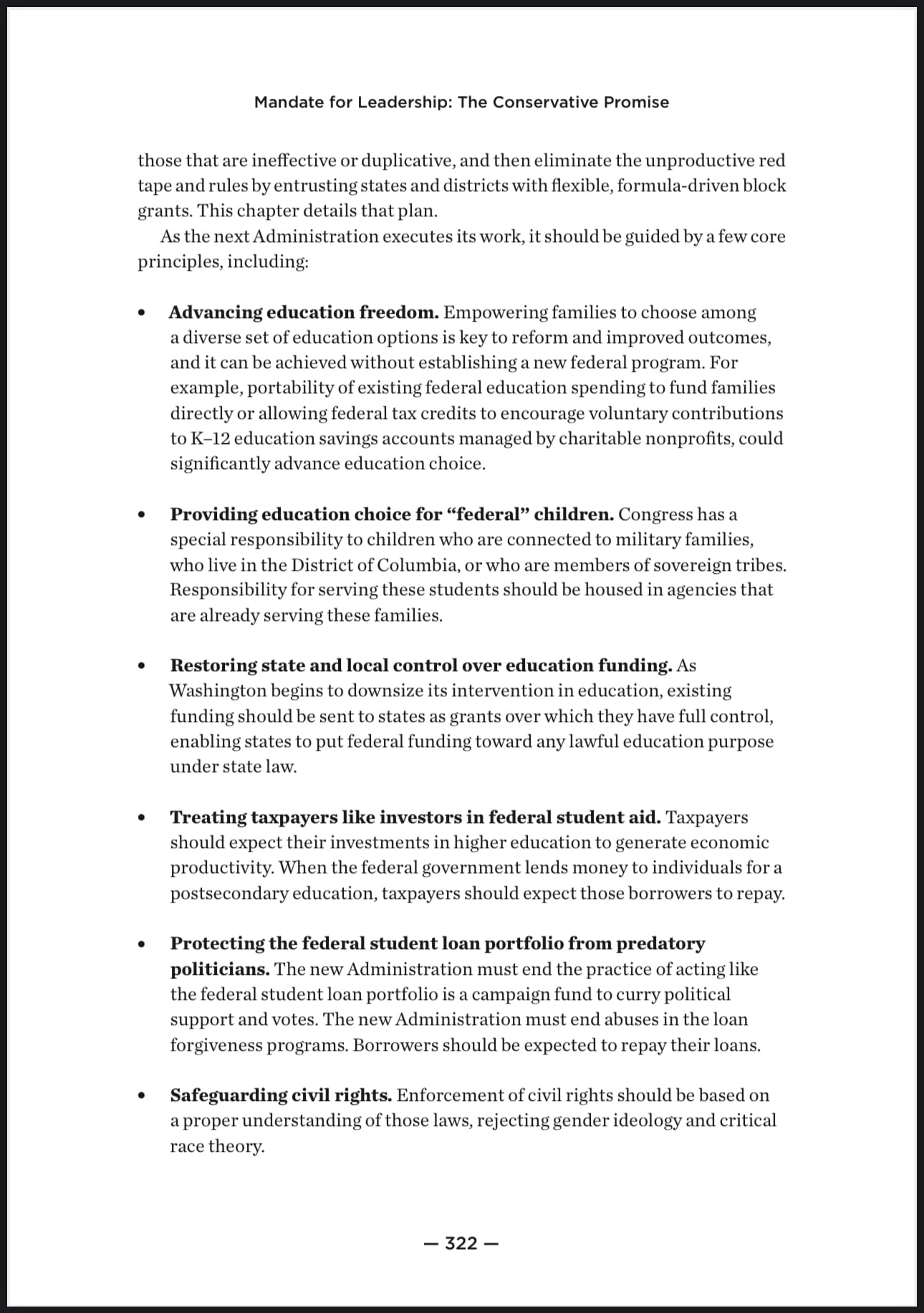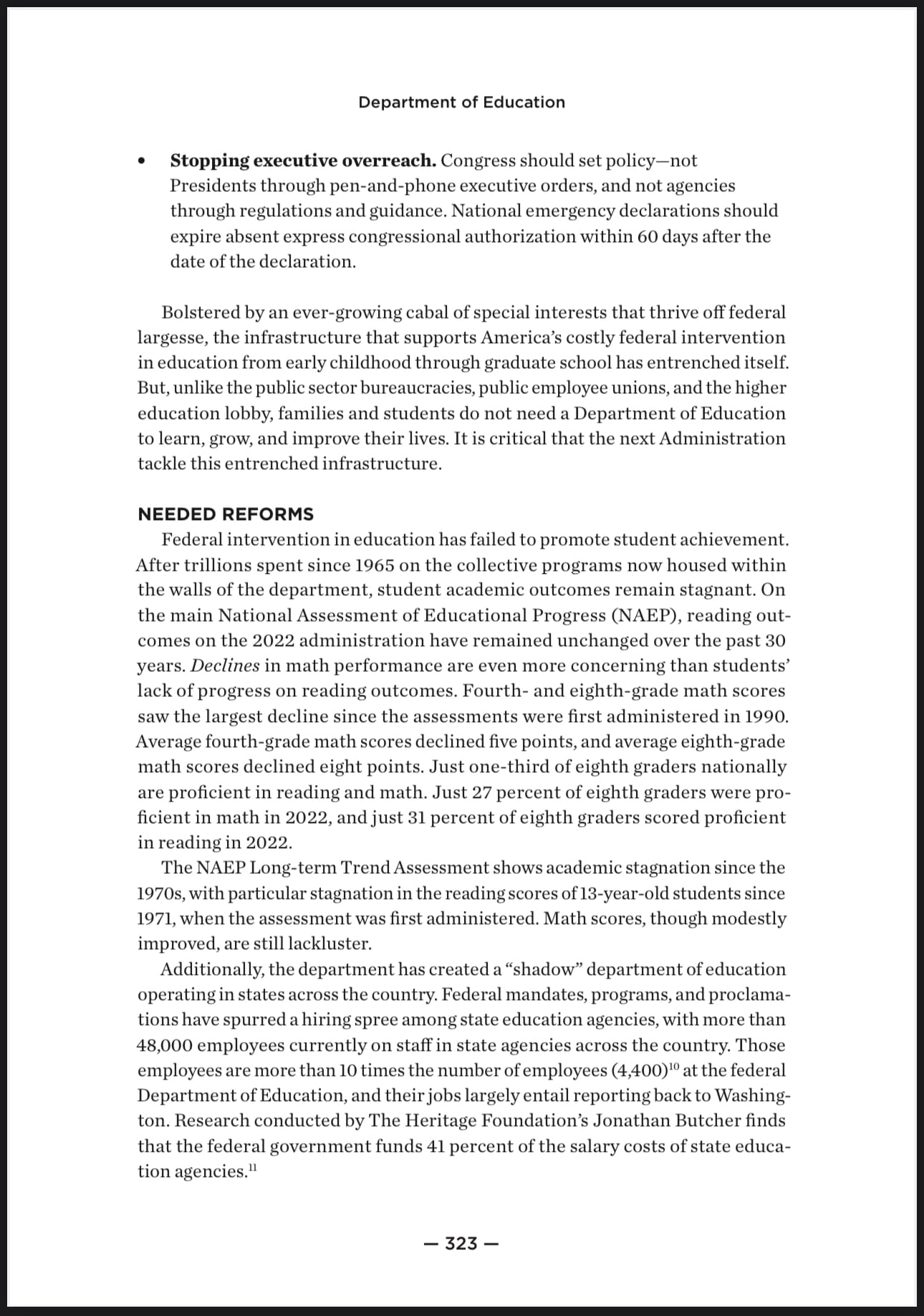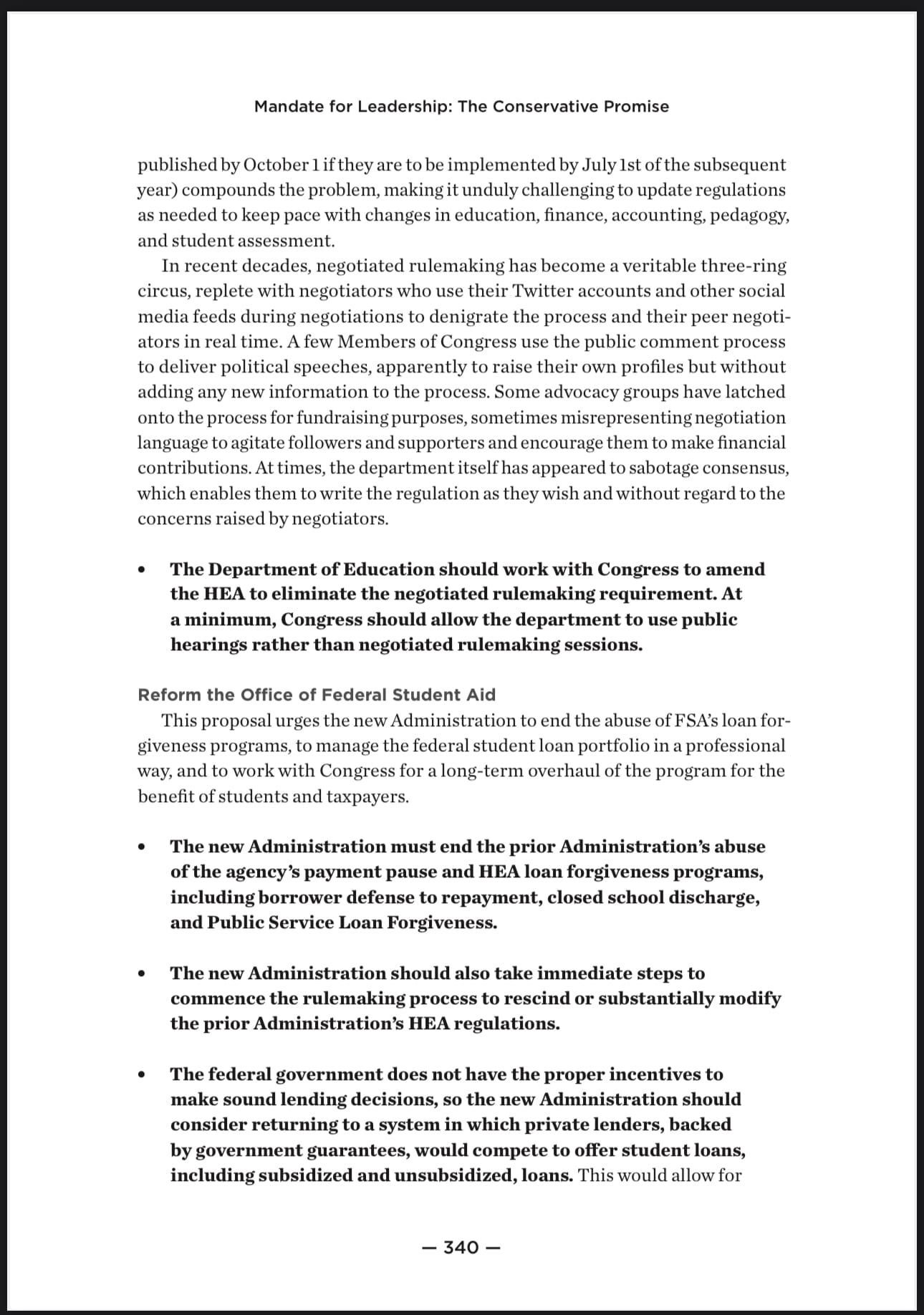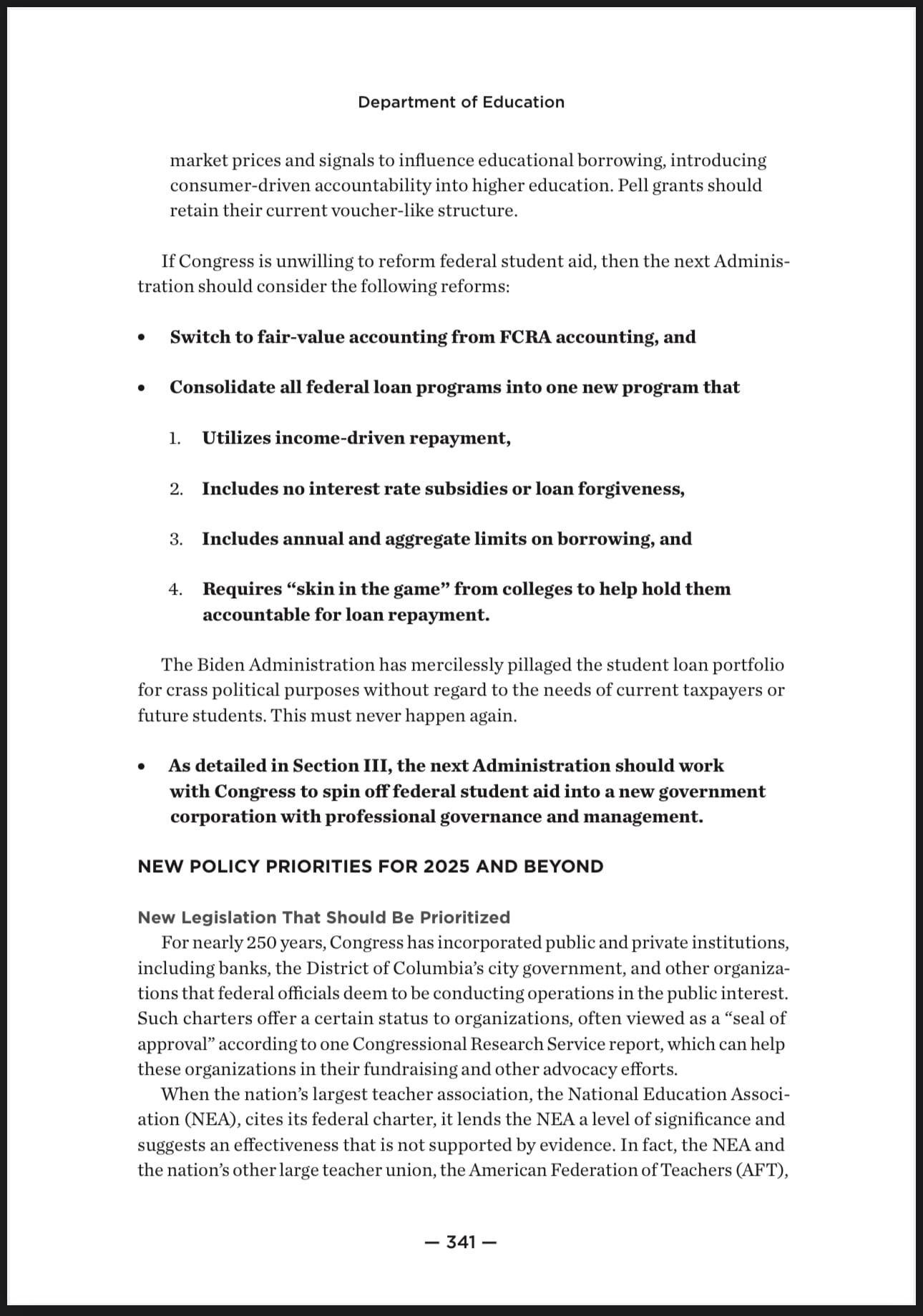EDUCATION





Based on the content from Project 2025, several key educational policies under a potential Trump presidency in 2025 would focus on reducing federal intervention in education, returning more control to states, and ultimately eliminating the federal Department of Education. Here are some specific outcomes and differences from his previous presidency:
Likely Outcomes:
1. Greater State Autonomy:
• States would be given the option to opt-out of federal K–12 programs under the APLUS Act proposal. This would allow states to redirect federal education funding toward programs of their choosing, tailored to their local laws and needs, without having to comply with federal guidelines.
2. Reduction of Federal Oversight:
• The mission to limit federal education policy and eventually eliminate the Department of Education would be prioritized. This could result in significantly reduced federal oversight, with more power given to local authorities and families.
3. Focus on School Choice:
• Expanding educational options through school choice initiatives, such as tax credits for contributions to education savings accounts and portability of federal education funding, would be central. This would allow families to choose schools, including private, charter, and faith-based options.
4. Reform of Higher Education:
• The next administration would continue to reform higher education, specifically looking at the federal student loan program, aiming to reduce forgiveness programs and introduce more taxpayer accountability. Colleges would be expected to take greater responsibility for student outcomes, including loan repayment.
Differences from the Past Presidency:
1. Elimination of Department of Education:
• Although Trump’s administration in the past focused on reducing federal involvement in education, there was no explicit move to eliminate the Department of Education. This new push to abolish the department represents an escalation in conservative educational goals.
2. Formalizing State Control:
• The APLUS Act and broader state opt-out provisions were not fully implemented during his previous presidency. While his administration did push for school choice, the new administration would seek more formal mechanisms to give states legal pathways to bypass federal programs entirely.
3. No New Federal Education Programs:
• Unlike his past administration, which introduced or modified some federal education programs (e.g., expanding school choice), this new term would focus more on eliminating or severely reducing existing federal initiatives rather than creating new ones.
4. Targeted Focus on Civil Rights:
• There would likely be increased attention on rolling back policies on gender ideology and critical race theory, with a return to what is termed a “proper understanding” of civil rights, which would mark a sharper pivot than during his previous term.
In summary, a second Trump presidency in 2025, following the policy vision of Project 2025, would take a more aggressive approach to dismantling federal involvement in education, pushing states to fully control their education systems, and emphasizing school choice and taxpayer accountability for higher education loans.